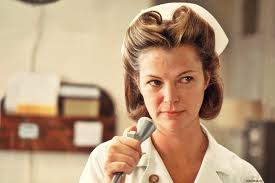Obamacare, as it was derisively labeled by those who wanted to scare us from it, has been one of our nation’s most successful large-scale pieces of legislation in recent memory. It’s expanded insurance tremendously, slowed formerly ballooning costs and would seem to be a long-term job creator. (Diagnostics and service aspects of medicine may soon be automated, but many other positions will require a human element for the foreseeable future.) Even Tea Party representatives have enjoyed the benefits.
You would think the populace would be thrilled, but poll numbers stubbornly suggest that the Affordable Healthcare Act has turned off much of the nation to a further sharing of our responsibility for one another. I don’t think of this as a victory for the GOP PR machine. I’m not one of those people who believe that the matter with Kansas is that the citizens have been hoodwinked. The matter with Kansas is Kansans, and to extrapolate that, the matter with America is Americans. I don’t believe we’re fooled. I think we often see things through ideology rather than by results, and that’s a dangerous stance, especially if we are headed for greater wealth inequality, encouraged by AI which will reduce employment opportunities. Perhaps futurists in Silicon Valley believe we’re entering an age of technological socialism, but the people are not enamored with such an idea, even if it would benefit them. From Thomas Edsall at the New York Times:
With the advent of the Affordable Care Act, the share of Americans convinced that health care is a right shrank from a majority to a minority.
This shift in public opinion is a major victory for the Republican Party. It is part of a larger trend: a steady decline in support for redistributive government policies. Emmanuel Saez, an economics professor at Berkeley and one of the nation’s premier experts on inequality, is a co-author of a study that confirms this trend, which has been developing over the last four decades. A separate study, “The Structure of Inequality and Americans’ Attitudes Toward Redistribution,” found that as inequality increases, so does ideological conservatism in the electorate.
The erosion of the belief in health care as a government-protected right is perhaps the most dramatic reflection of these trends. In 2006, by a margin of more than two to one, 69-28, those surveyed by Gallup said that the federal government should guarantee health care coverage for all citizens of the United States. By late 2014, however, Gallup found that this percentage had fallen 24 points to 45 percent, while the percentage of respondents who said health care is not a federal responsibility nearly doubled to 52 percent.•
Tags: Emmanuel Saez, Thomas Edsall

